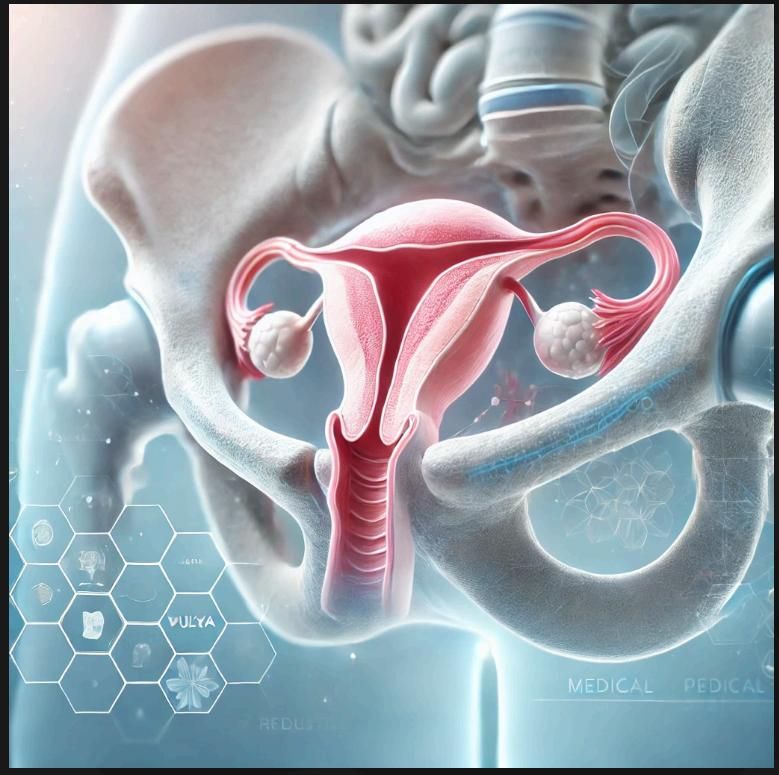Bleeding Menstrual: What is Normal and What is Abnormal
Long-Term Reversible Contraception: A Comprehensive Guide for All Stages of Reproductive Health
Introduction:
In today's world, reproductive health is a crucial aspect of women's overall wellness. Effective contraception enables women to make informed choices about their bodies and futures. Among the many available options,
Long-Term Reversible Contraception (LARC) stands out as an excellent solution, offering both flexibility and effectiveness for women at various life stages. This advanced guide delves into LARC, its types, benefits, and who should consider it, including women with heavy periods, beyond just contraception.

What is Long-Term Reversible Contraception?
Long-Term Reversible Contraception refers to contraceptive methods that prevent pregnancy for extended periods—typically between 3 and 12 years—while remaining fully reversible. This means that after stopping the method, fertility returns rapidly, making LARC a preferred option for women who aren't ready for permanent sterilization
Types of Long-Term Reversible Contraceptive Methods?
1) Intrauterine Devices (IUDs)
- Copper IUDs: A non-hormonal device like Paragard can last for 10-12 years. It works by releasing copper ions, creating an environment toxic to sperm, preventing fertilization. It’s an excellent option for women looking for long-term contraception without hormones and is highly recommended for those with heavy menstrual cycles, as it does not interfere with hormonal balance.
- Hormonal IUDs: Devices like Mirena release levonorgestrel, a progestin that prevents ovulation and thickens cervical mucus. Effective for 3-7 years, hormonal IUDs not only prevent pregnancy but can significantly reduce heavy periods and menstrual cramps. Women suffering from heavy periods may find this option beneficial for reasons beyond contraception.
2) Implants
- Nexplanon: This small, flexible rod is inserted under the skin of the upper arm and releases progestin over a three-year period. Its primary action is to prevent ovulation and thicken cervical mucus, making pregnancy highly unlikely. The insertion and removal procedures are simple, performed in a healthcare provider's office.
3) Injectables
- Depo-Provera: Given via injection every three months, this contraceptive method contains medroxyprogesterone acetate, which prevents ovulation and alters the uterine lining. However, it may cause side effects like weight gain and changes in bone density over time, necessitating regular health check-ups.
Who Should Consider LARC?
HRT works by restoring the levels of estrogen and progesterone in the body. These hormones play critical roles in regulating various bodily functions, including the menstrual cycle, mood, bone density, and skin health.
- Younger Individuals: For younger women, LARC provides an opportunity to manage their reproductive health while focusing on education or career goals. LARC ensures that fertility control is maintained without the daily hassle of short-term methods like birth control pills.
- Women with Heavy Periods: Hormonal IUDs are particularly beneficial for women who suffer from heavy periods, as they often lead to lighter bleeding or even the absence of periods. These devices offer relief while also providing long-term contraception.
- Women Who Have Completed Childbearing: For those who have finished building their families but are not ready for permanent sterilization, LARC offers a temporary solution with the flexibility to conceive again if desired.
Mechanisms of Action
Understanding the mechanisms behind LARC helps women make well-informed choices about their reproductive health:
- Copper IUDs: These devices release copper ions that are toxic to sperm, preventing them from fertilizing an egg. Additionally, they create a local inflammatory response that inhibits implantation.
- Hormonal Methods: These work by suppressing ovulation, thickening cervical mucus, and thinning the uterine lining, preventing fertilized eggs from implanting.
Side Effects and Considerations
Although LARC methods are generally well-tolerated, women should be aware of potential side effects:
- Common Side Effects: These include changes in menstrual cycles, such as spotting or irregular bleeding, cramping during insertion, and possible hormonal effects like mood changes or weight gain (though hormonal side effects, including weight gain, are rare).
-
Risk Factors and Contraindications: Certain health conditions, like a history of blood clots or specific cancers, may contraindicate the use of LARC methods. It's crucial to consult a healthcare provider to determine the best contraceptive method for individual needs.

Efficacy and Safety
With a failure rate of less than 1%, LARC is among the most reliable forms of contraception. Long-term studies have confirmed the safety of these methods, showing minimal health risks over extended use. Regular medical consultations ensure any side effects or risks are promptly addressed.
Addressing Myths and Misconceptions
Despite their effectiveness, misconceptions about LARC persist. Some believe these methods can cause infertility or are inappropriate for younger women. Educational conversations with healthcare providers are essential to dispel these myths, allowing women to make informed, confident decisions about their reproductive health.
Devices Available and Durations
- Malina: Lasts for up to 8 years.
- Kailas: Effective for up to 5 years.
- Silva Lilatta: Another device with a long-term efficacy of several years.
At Advocare Montgomery Gynecology, we prioritize your health and well-being by offering only the best FDA-approved hormone therapies.
How Advocare Montgomery Gynecology Can Help
At Advocare Montgomery Gynecology, we are committed to supporting women through all stages of their reproductive health journey. Whether you're considering LARC for the first time or exploring alternatives, our expert team provides personalized consultations tailored to your unique health and lifestyle needs.
From IUDs to implants, our goal is to ensure you feel informed and confident in your choice of contraception. We offer comprehensive assessments to guide you in making the best decision for your long-term health.
Conclusion:
Long-Term Reversible Contraception offers an empowering, flexible solution for women at all stages of reproductive life. By understanding the available options, addressing concerns, and staying informed, women can make choices that align with their reproductive goals and overall well-being.
If you’re interested in learning more about LARC or have questions about your contraceptive options, contact Advocare Montgomery Gynecology today. Our team is ready to provide expert guidance, helping you take control of your reproductive health with confidence.








